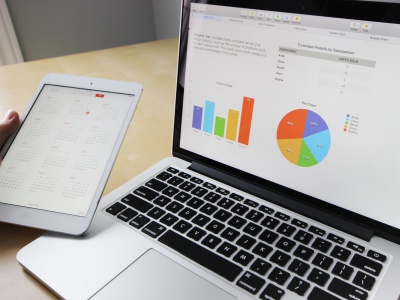Payroll & Human Resources (HR) Systems / Software Solutions
Transforming Staff Management: Innovative HR Solutions for Malaysian Enterprises
In today’s rapidly changing business environment, organizations are re-evaluating their HR strategies. While navigating uncertainty presents challenges, it also offers a chance to innovate with technology that enhances the overall employee experience and assists management in making accurate decision making. It is time to rethink core HR, it is not just as HR systems used in Malaysia, but as central hubs that unify your organization and enhance how you manage your workforce to achieve business goals and drive success.
Traditional HR solutions in Malaysia as well as its processes lack the agility and experience that today’s workforce demands. The implementation of next-gen HR solutions for Malaysian businesses is the integration of systems and practices that are intended to streamline associated procedures, bring higher efficiency while supporting strategic goals. An HR system can not only function as payroll software for Malaysian businesses, but also act as a tool for performance management and staff development. In other words, other than helping management as a payroll system for Malaysian enterprises, it also helps them achieve more efficient resource planning.
How Companies Can Implement HR Systems in Malaysia Effectively
1. Needs & Objectives Review:
The starting point is always to analyze the HR requirements of organizations in various industries. Before implementing an HR system, Malaysian companies should gain knowledge of shortfalls in recruitment, performance management, staff development, employee engagement and compliance.
Then, decide what your company wants to accomplish with an HR solution in Malaysia. Goals may range from streamlining recruitment methodologies, employee engagement satisfaction, compliance, or automation of payroll systems in Malaysia.

2. Choose the “Right” HR Solution:
Investigate different options in the HR solutions Malaysia market, like a Human Resource Management System (HRMS), Applicant Tracking System (ATS) and Learning management system. Key features to consider would be:
- Automation on the routine work such as the daily attendance, payroll and benefit calculation.
- Reporting capabilities such as the leaves report, payroll contribution report.
- Integration with other systems or devices, such as collecting data from the attendance device, transmitting data with other operating systems.
Make sure the selected HR solution fulfills Malaysian labor laws and regulations which includes tax calculations, EPF (Employees Provident Fund) and SOCSO (Social Security Organization) contributions. Furthermore, if the capability of recruitment and staff development is added, it will be an ideal HR system in Malaysia to help corporations grow.

3. Customization & Integration:
Take customization steps to your HR system in Malaysia that needs to make it work for all these different business areas, like adding local compliance features or modifying workflows and integrate the HR solution with other systems used by your organization (such as payroll, finance, other operating systems) to support straightforward data transfers and minimize data input duplications and mistakes.

4. Data Migration & Setup:
Migrating current data about employees like record of employment, payroll details and performance reviews from different software to the new HR solution in Malaysia is important, and the process should ensure the sensitive information is securely transferred and stored. In the process of migration, it is imperative to ensure data precision and comprehensiveness. The initial setup of using the tool, which includes configuring user roles and permissions, workflow processes to align with your organizational structure and reporting templates. Ensure the HR system in Malaysia works smoothly, without significant downtime.

5. Training & Transition Techniques:
Guide HR staff and end-users comprehensively on how to effectively use the new HR solution in Malaysia. This encompasses such guidance as for system functionalities, data input data output and reporting capabilities. Handle the switch to a new HR system by explaining the advantages and differences that come with it to all employees. During the adjustment, address any issues and continue to provide support.

6. Compliance & Reporting:
Ensure the HR system for Malaysian enterprises is periodically reviewed and updated for compliance with changes in local labor laws. Every change in legislation, from the tax laws and employment standards to statutory contributions are plaintext. Also, leverage the reporting functionality of the HR system in Malaysia which will permit you to create daily as well as on-demand reports over HR metrics like employee performance, churn rates and even compliance standing.

7. Monitoring & Evaluation:
Monitor the performance of the HR solution in Malaysia to ensure it meets expectations. Gather feedback from users to identify any issues or areas for improvement, and make necessary adjustments to enhance the HR system for your Malaysian enterprise.

8. Support & Maintenance:
Work closely with the vendor's technical team to ensure troubleshooting and system issues may be addressed or solved on time. Maintaining the HR solution in Malaysia up to date with regulation to ensure its efficiency and security.

9. ROI Evaluation:
Evaluate the return on investment (ROI) of the HR solution for your Malaysian company, by assessing improvements in the processes, cost savings, turnover rate, and employee satisfaction. Besides, the insights collected from the evaluation may be used in further enhancements or additional HR system tools in Malaysia that benefit the company. The HR solution in Malaysia should also be aligning with your business goals, while driving long-term growth and success.

What Are Some Challenges of Not Using an HR Solution for Malaysian Businesses?
Many enterprises overlook the fact that the HR department is not only responsible for hiring and payroll, but also plays a crucial role in daily operations. HR significantly influences the company's overall workflows, effectiveness, and growth. Without an effective HR system or payroll software, Malaysian companies can struggle to cope with the below:
Talent Acquisition:
Placing the right person in the right position can be a significant challenge, as there is often a disparity between experience listed on paper and real-time performance. A candidate with experience in a similar field may not necessarily align with the current company's culture and environment.Implementing the right HR and payroll system in Malaysia can streamline the hiring process, provide valuable insights and analytics on recruitment metrics, and lead to better outcomes.
Performance Management:
As a corporation grows, it can be challenging for the HR department to effectively measure performance without the right HR system in Malaysia. Additionally, the rise of remote and hybrid work environments for international corporations has made it even more difficult to maintain elevated levels of employee engagement.Finding the “right” HR solution in Malaysia helps create the development plan and performance goals of employees, ensuring they understand their assigned roles and goals. The HR system for Malaysian enterprises can provide the tools of monitoring and recording the performance and continuous education of employees, auto-processing of tracking accomplishments and distributing rewards, ensuring they are done in a timely and fair manner.
Complex Regulations:
Malaysian labour laws are frequently updated, and keeping up with the latest changes related to wages, working hours, and employee rights can be complex and necessitates ongoing adjustments. Similarly, ensuring compliance with various legal and regulatory documentation and reporting requirements can be burdensome as well.Implementing an HR solution in Malaysia can ensure enterprise navigating the complex regulation. An HR system in Malaysia can help comply with labour laws and regulations, maintain accurate records, reduce the risk of legal issues and enhance the company’s reputation.
Employee Benefits, Health & Safety:
Employees are a company's greatest asset, making it crucial to support their mental and physical health. Ensuring a healthy work-life balance, providing adequate resources to manage stress, and administering compensation and benefits programs can be challenging without an HR system in Malaysia.An HR and payroll software in Malaysia can centralized the employees’ benefits, making it easier to administer health insurance as well as retirement plans, helping corporations monitor trends and make data-driven decisions for improving overall employee benefits and health safety programs.
Staff Education & Development:
There is often a gap between the skills employees currently have, and those needed for evolving job roles, which makes it challenging to keep the workforce updated. Additionally, employee expectations regarding the work environment and company culture have shifted significantly since the pandemic.Implementing an HR solution in Malaysia can help bridge this gap by offering enhanced development opportunities for employees.
Key Features of SAP HR System for Malaysian Corporations
They offer various HR solutions for Malaysian businesses, providing automated HR workflows and intelligent services that allow you to manage processes beyond mere transactions. These enhanced HR systems for Malaysian companies enable seamless implementation of business processes across the HR domain, leading to enhanced insights, strategic decision-making, and improved business performance.

Personnel Administration:
Their HR solution for Malaysian businesses streamlines the management of employee master data, including personal details, organizational roles, and employment history. Their HR system in Malaysia simplifies record-keeping and processes related to hiring, transfers, promotions, and terminations, ensures the corporate preparing for future staffing needs.Organizational Management:
This feature helps create and maintain organizational structures, defining reporting lines, hierarchies, and positions. Their HR solutions in Malaysia enhances understanding of the organization’s structure and supports efficient human resource management, provides a visualization of hierarchy and across all HR processes.Time Management:
Their HR solution for Malaysian businesses offers comprehensive time management tools to track attendance, leaves, work schedules, and overtime. Also, their HR system in Malaysia automates time recording, streamlines time-related processes, and ensures precise calculation of working hours.
Payroll System for Malaysian Businesses:
Their HR solution for Malaysian corporations handles end-to-end payroll processing, including data entry, calculations, tax deductions, and pay statement generation. Their HR & payroll system in Malaysia ensures compliance with local regulations, simplifies payroll administration, and delivers accurate, timely employee payments.Benefits Administration:
This feature enables HR teams to manage employee benefits programs, such as health insurance and retirement plans. Their HR system in Malaysia facilitates plan administration, enrolment processes, and offers employee self-service for benefit-related queries.Talent Management:
Their HR system in Malaysia supports comprehensive talent management, including recruitment, onboarding, performance appraisals, development, and succession planning. These features of their HR solution for Malaysia enterprises assist organizations in attracting, retaining, and developing top talent. Their HR system also helps manage tracking applications, organizing and reviewing candidate information. It streamlines the interview scheduling process and ensures the smooth recruitment process.
Employee Self-Service:
Their HR solution in Malaysia provides employee self-service (ESS) options for employees to access the employee handbook, company policies and development programs. Also, as a payroll software for Malaysian businesses, it provides a secure platform for updating personal information, viewing pay statements, requesting leaves, and engaging in performance management. This functionality of their payroll & HR system in Malaysia empowers employees to handle HR tasks independently, reducing administrative workload and improving employee benefits.Reporting & Analytics:
Their HR solution in Malaysia is a single-system centralized data, preventing redundant data storage, ensures consistency across the system. It offers advanced reporting and analytics tools to generate insightful reports, analyze HR data, and support data-driven decision-making. Their HR system in Malaysia also helps track HR metrics, monitor workforce trends, and evaluate the effectiveness of HR programs, allowing managers to generate reports on the organizational structure, staffing levels and metrics.Scalability:
Their HR solution for Malaysian businesses supports the development of HR applications. Based on the growth of the corporation, expanding various modules for supporting the analysis and management of organizational structure.How Can Payroll Solutions Help Malaysian Businesses
A payroll system in Malaysia is a specific program or solution for working with the full payroll process for employees. Payroll software for Malaysian corporations allow accurate and timely compiling, processing or both of employee work hours (as well as other relevant details) or additions/deductions such that employees receive their proper wages/benefits in an accurate and regular manner without violation to any local laws.
Functionalities of Payroll Software for Malaysian Corporations
1. Attendance Integration:
A payroll system in Malaysia integrates clock-in times and attendance to accurately record employee work hours and absences. A payroll system in Malaysia also manages various types of leave, including sick leave, annual leave, maternity leave, and unpaid leave.2. Payroll Calculation:
By using a payroll software in Malaysia, it automatically calculates employee salaries based on hourly rate, monthly basic, or other compensation structures including overtime pay, bonuses, commissions and other incentives according to company policies and Malaysian labour laws.3. Deduction on Tax & Statutory:
Malaysia's labour laws include various tax and statutory requirements, such as income tax, EPF contributions, SOCSO contributions, and EIS contributions. Each of these deductions can be accurately calculated in a payroll system for Malaysian companies, based on different percentages and employee income levels.4. Payroll Processing:
Payroll system in Malaysia could facilitate the direct transfer of salaries to employees’ bank accounts, generating bank files for electronic transfers and generating detailed payslips for employees that include salary breakdowns, deductions, and statutory contributions.5. Employee Easy Access:
Nearly all payroll software in Malaysia provides features that allow employees to access their payslips and statements through a self-service portal. Additionally, employees can request leave and check their leave balance directly from the payroll system in Malaysia, while supervisors can approve or reject these leave requests through the system.Some Key Differences Between Human Resources (HR) & Payroll Systems
In today’s business environment, effective management of human resources and payroll is crucial for organizational success. While both human resources (HR) systems and payroll systems in Malaysia play significant roles in managing employees, they serve distinct functions and are designed to address different needs within an organization.
An organization needs to understand the differences between these HR and payroll software for Malaysian businesses, to help streamline operations, enhance efficiency, and ensure compliance with regulations.
| HR System for Malaysian Businesses |
Payroll System for Malaysian Businesses | |
| Purpose | HR solutions in Malaysia is designed to manage and streamline a broad range of human resources functions, extending beyond payroll functions. | Payroll software in Malaysia specifically focuses on managing the payroll process. |
| Scope | HR systems in Malaysia typically include modules for recruitment, employee records, performance management, staff development, benefits administration, compliance, and employee engagement. | Payroll systems for Malaysian businesses handle payroll calculations, tax deductions, statutory contributions (such as EPF and SOCSO), and generating payslips ensuring accurate and timely employee payments. |
Core Functions of HR & Payroll Systems in Malaysia
| HR Solution in Malaysia | Payroll Software in Malaysia |
|
|
Data Management in Payroll & HR Solutions for Malaysian Companies
HR solutions for Malaysian corporations manage a wide range of employee data including personal information, job roles, performance metrics and training records. On the other hand, payroll software for Malaysian businesses focuses on payroll specific data such as salary rates, hours worked, tax information and deductions.
While both HR and payroll systems in Malaysia are essential for effective human resource management, they serve distinct roles. HR systems in Malaysia offer a broad range of functionalities to manage various HR processes, whereas payroll software in Malaysia focus specifically on the accurate and efficient processing of employee compensation and statutory contributions. Integrating both systems can help streamline human resources and payroll operations, ensuring consistency and accuracy across all employee-related functions.
The two main Human Resources (HR) and payroll system in Malaysia provided by SAP are “HCM” and “SuccessFactors”, and their differences are highlighted below:
| HCM | Success Factor |
|
|
Take Your Business to The Next Level with These HR & Payroll Software in Malaysia
These solutions provide automated HR workflows and intelligent services, allowing you to manage processes rather than just transactions. These solutions streamline the implementation of business processes across the HR domain, enhancing insights, supporting strategic decision-making, and ultimately driving improved business performance.
One of the key components of their HR solutions and payroll software for Malaysian businesses is their automated compliance with local and global regulations. In today’s rapidly evolving business and regulatory environment, staying current with compliance requirements at both global and local levels is essential. Specifically, their “Employee Central” and “Employee Central Payroll” features offer localization abilities that extend beyond basic language translation, ensuring comprehensive compliance.
Their payroll and HR solution in Malaysia is very versatile, it is a cloud-based Human Resources Information System (HRIS) designed to standardize HR processes across the globe. This comprehensive solution enhances visibility and enables organizations to make informed decisions about their workforce. By leveraging its flexible features, businesses can streamline HR operations, improve data accuracy, and support effective people management strategies.
- Efficiently manage user profiles and organizational charts with confidence and ease.
- Support HR compliance across more than 100 locations and diverse industries.
- Boost productivity through self-service tools and proactive alerts.
- Utilize embedded features for comprehensive global benefits administration and absence management.
Through “Employee Central Payroll”, their payroll software for Malaysian enterprises ensures timely and efficient employee payments by automating and streamlining the payroll process. As a professional payroll system for Malaysian companies, it reduces the risk of errors and simplifies pay management, making payment processing faster and more accurate.
Implementing this payroll system for Malaysian companies enhances employee trust with effective and transparent administration, cut costs by standardizing processes on a single payroll platform that supports localization for over 48 regions and elevate user experiences with streamlined, consistent processes across HR, payroll, worktime, as well as benefits management.

Learn More About Human Resources & Payroll Systems for Malaysian Companies - FAQs:
1. What are HR systems for Malaysian corporations?
Human Resources (HR) systems in Malaysia are designed to manage companies’ personnel activities and cost effectively. It can help you to manage employee records, expediting recruitment and performance monitoring.
2. How can payroll software in Malaysia help my company?
Payroll systems for Malaysia corporations can help them process the payment to their workforce in a timely and efficient way. With payroll software, Malaysian companies can also effectively reduce human errors and other risks when doing payment processing.
3. Why does a company need an HR system in Malaysia?
An HR system for Malaysian businesses, can help them handle all aspects of the HR process. With an HR solution, Malaysian enterprises can reduce manual data entering and paperwork. Employees also can self-log in to the portal to apply their leave and payroll checking on their own, which reduces workload on HR staff.
4. What is the cost to implement an HR system in Malaysia?
To implement an HR system, Malaysian businesses can expect the cost to largely depend on how big the whole project is and how many users will be using the new HR solution. To reduce your cost, the first step is to determine your budget to spend on the whole HR system. The same logic also applies to implementing new payroll software in Malaysia.
5. What key functions should an HR system have?
Normally having functions that are more than just a payroll software for Malaysian businesses, HR systems should have basic functions including payroll, benefits administration, time tracking, workforce analytics and employee’s self-service capabilities.